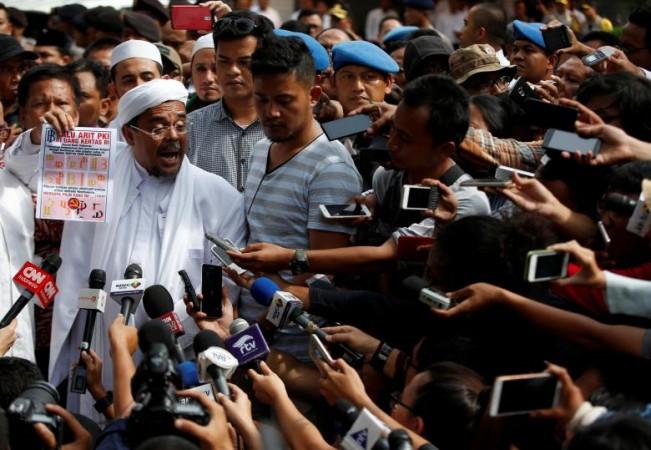
The leader of the notorious Islamic Defenders Front (FPI), Habib Rizieq, is in hot water after the Indonesian police officially named him a suspect on Tuesday, May 30, and issued an arrest warrant against him. Rizieq has been charged under the country's stringent anti-pornography laws for exchanging explicit messages with a woman.
The FPI leader, who played a key role in the campaign against former Christian governor of Jakarta Basuki "Ahok" Tjahaja Purnama, allegedly sending explicit messages to a woman named Firza Husein, who is not his wife. Screenshots of Rizieq's messages exchanged with Husein have gone viral on the social media.
Under Indonesia's anti-pornography bill, it is "forbidden to spread pornographic content." If found guilty, the perpetrator could be handed an imprisonment of at least four years for even possessing pornographic material.
Indonesian police on Tuesday announced that they had issued an arrest warrant to Rizieq's home in central Jakarta, according to Tempo reports. Rizieq, however, is currently overseas, reportedly in Saudi Arabia. Hence, the police have also suggested that they may issue an Interpol 'red notice' to have him deported and face the legal music.

Ironically, the FPI is a staunch supporter of the pornography laws in the country, and has always backed the imposition of strict, conservative Islamic norms across Indonesia.
The anti-pornographic bill was introduced in the country in 2008. Before the law came into effect, there were other forms of the law in 2005 and 2006 that had sought to criminalise kissing in the public and women exposing 'too much' skin, for example, by wearing bikinis.
As per the Indonesian laws, pornography is defined as "pictures, sketches, illustrations, photos, writing, voice, sound, moving pictures, animation, cartoons, conversations, movements of the body ... which contain obscenity or sexual exploitation which violates the moral norms in society."
The law came into effect months before an election under former president Susilo Bambang Yudhoyono who had sought to curry favour with the the marginal Islamist parties that had drafted the legislation.

















